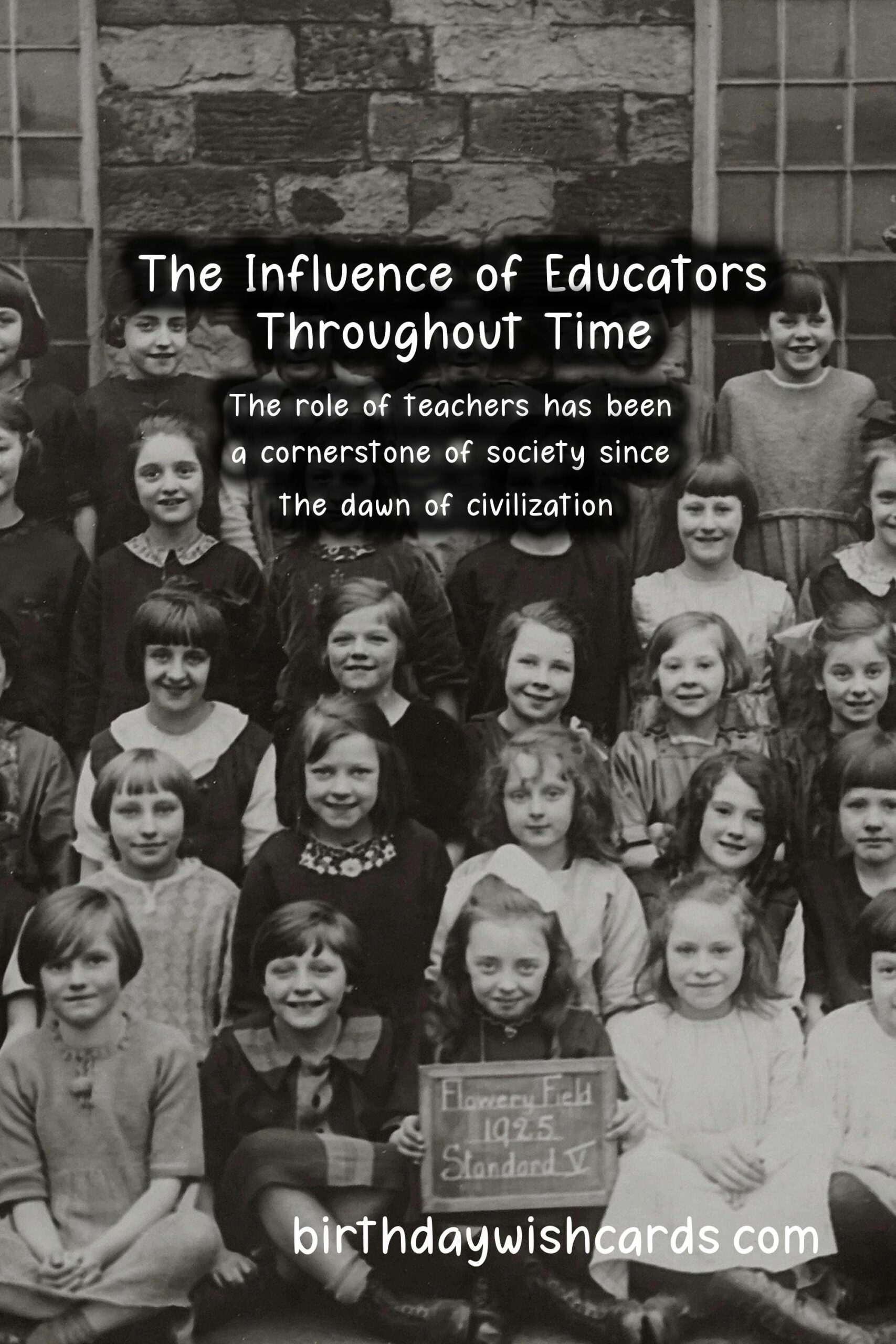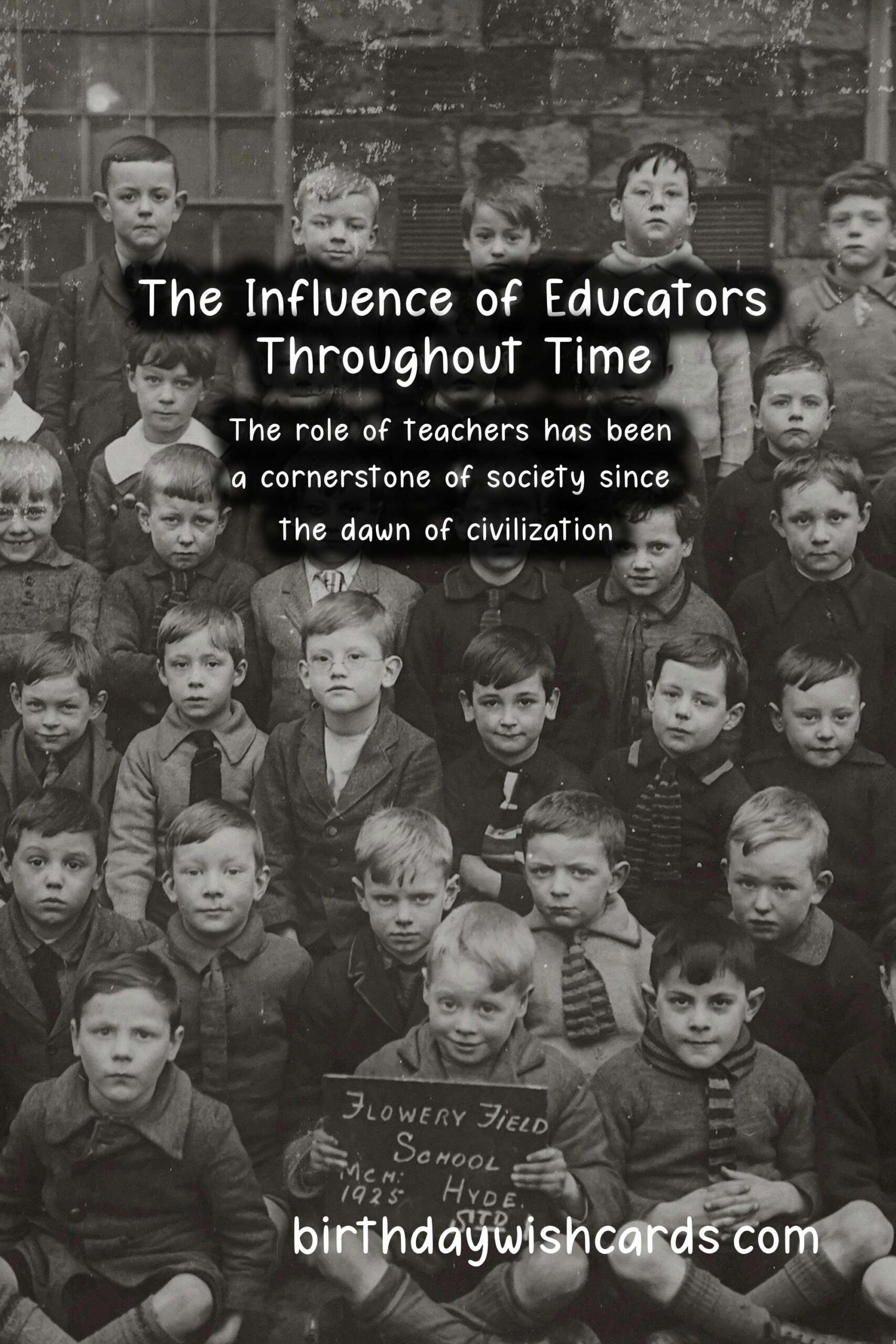History and Significance of Teachers
History and Significance of Teachers
The role of teachers has been a cornerstone of society since the dawn of civilization. Educators have shaped generations, passed down knowledge, and forged a path towards enlightenment. This article examines the rich history and profound significance of teachers across cultures and epochs.
A Historical Overview of Teaching
The origins of teaching can be traced back to ancient societies where wisdom was passed from one generation to the next. In the ancient Egypt of 3000 BC, scribes were not just educators but also the keepers of knowledge, responsible for the education of future leaders and officials.
In ancient Greece, philosophers such as Socrates, Plato, and Aristotle revolutionized education. Socrates introduced the Socratic Method, promoting critical thinking through dialogue. Plato founded the Academy, which emphasized a structured approach to learning. These foundations marked the evolution of teaching as a respected profession.
With the rise of the Roman Empire, education became more accessible. The Romans established schools for formal education, emphasizing language, rhetoric, and philosophy. This not only fostered a culture of learning but also laid the foundation for the educational systems we recognize today.
The Medieval and Renaissance Periods
The transition into the Medieval period saw the Church taking control of education. Monasteries became the centers of knowledge preservation, with monks teaching grammar, rhetoric, and theology. The introduction of universities in the 12th century was a significant milestone—places where teachers and students engaged in study and debate.
During the Renaissance, a renewed interest in classical learning sparked innovations in pedagogy. Influential figures like John Dewey and Johann Heinrich Pestalozzi began advocating for experiential learning and holistic education. This marked an evolution in educational philosophy, emphasizing the importance of the individual student’s experience.
Modern Teaching and Its Evolution
The Industrial Revolution brought significant changes to education, as the need for a literate workforce grew. Formal schooling became more systematic and standardized. The establishment of public education systems in the 19th century marked a pivotal moment, providing free access to education.
In the 20th century, the role of teachers evolved even further with advancements in psychology and pedagogy. The introduction of progressive education by thinkers like Maria Montessori and John Dewey emphasized active learning and the importance of nurturing creativity.
The Importance of Teachers Today
Teachers play a crucial role in shaping not only the minds of their students but also the future of society. They are instrumental in developing critical thinking, fostering creativity, and instilling values. In an increasingly complex world, the role of educators as guides and mentors is more significant than ever.
Moreover, teachers are pivotal in addressing social inequalities. By providing quality education to all, they help bridge the gap and create opportunities for marginalized communities. Their influence extends beyond the classroom, impacting community development and social transformation.
Challenges Faced by Educators
Despite their importance, teachers face numerous challenges in modern society. Increased class sizes, a lack of resources, and bureaucratic red tape can hinder their ability to teach effectively. Additionally, mental health issues among educators have been exacerbated by the COVID-19 pandemic, leading to burnout and attrition.
Addressing these challenges requires a collective effort from policymakers, communities, and educational institutions. Investing in teacher well-being and professional development is essential to ensure they can continue to inspire and educate future generations.
The Future of Education and Teachers
As technology continues to advance, the landscape of education is changing rapidly. Online learning and digital resources are becoming more prevalent, necessitating that teachers adapt and evolve alongside these changes. Training educators to integrate technology into their teaching methods is crucial for keeping pace with the needs of modern learners.
However, the intrinsic human connection that teachers provide cannot be replaced by technology. The future of education will likely see a hybrid model of learning, where teachers utilize technology to enhance their teaching while still maintaining the personal touch that is so vital to effective education.
Conclusion
The history of teaching is a rich tapestry woven from the efforts and sacrifices of countless educators throughout the ages. From ancient scribes to modern-day teachers, the significance of these figures remains profound. In recognizing and celebrating the contributions of teachers, we acknowledge the bedrock upon which society builds its future.
As we look ahead, it is imperative to support our educators, ensuring they have the tools and resources necessary to continue their vital work. The legacy of teachers is a testament to the enduring power of knowledge, wisdom, and inspiration.
The role of teachers has been a cornerstone of society since the dawn of civilization.
Educators have shaped generations, passed down knowledge, and forged a path towards enlightenment.










#Teachers #Education #History #Significance #Teaching






